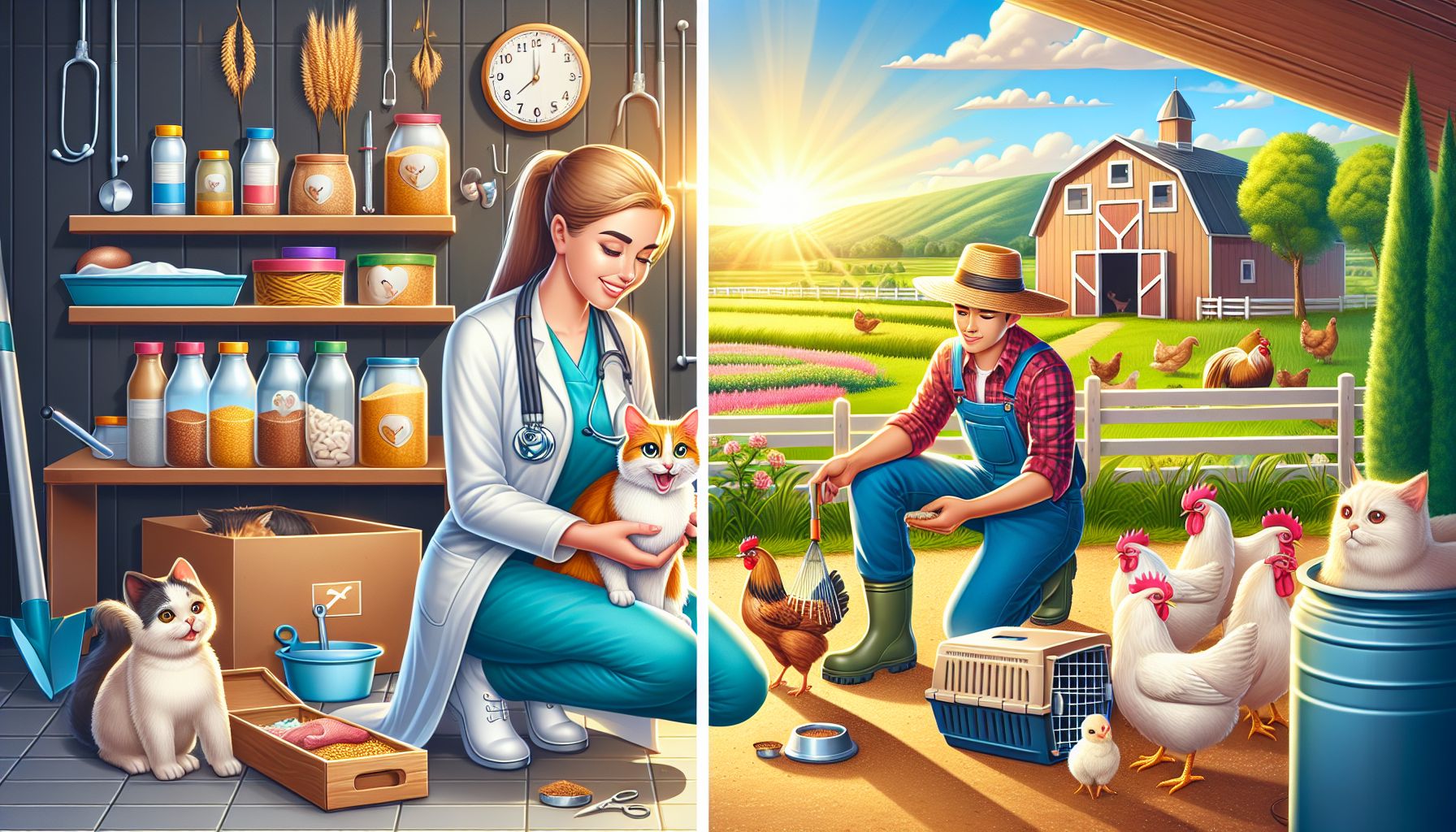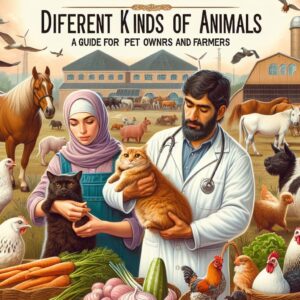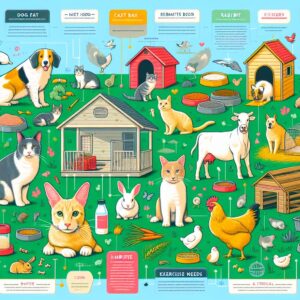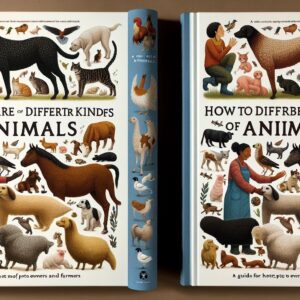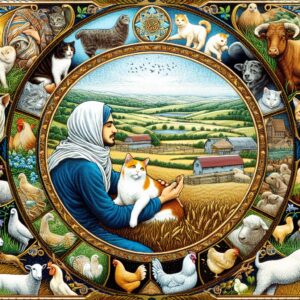Owning and caring for animals can be a rewarding experience, as pets bring us unconditional love and joy, while livestock play a vital role in the food supply chain. Whether you are a pet owner or a farmer, it is essential to ensure the health and well-being of all animals under your care. In this article, we will explore some fundamental principles of animal care, from providing proper nutrition and shelter to understanding the importance of veterinary care and protecting injured animals in the wild.
Proper Nutrition and Shelter
Providing animals with balanced and nutritious diets is crucial for their well-being. Pet owners must ensure that their beloved companions receive food suited to their specific needs. Dogs, for example, require a diet rich in protein, while cats must have food that contains the necessary amino acids. Additionally, it is important to avoid overfeeding pets, as obesity can lead to various health issues.
Similarly, farmers must prioritize proper nutrition for their livestock. Understanding the dietary requirements of different animals, such as cows, pigs, or chickens, is essential for their growth and productivity. Farmers should consult livestock nutrition experts to develop custom feeding plans that bear in mind the specific needs of each species.
Creating suitable shelter and living conditions is equally important for both pets and livestock. Pet owners should ensure their furry friends have comfortable bedding, appropriate temperature control, and access to fresh water. Furthermore, providing proper space, ventilation, and protection from extreme weather conditions is crucial for the well-being of farm animals.
The Role of Veterinary Care
Regular veterinary care is vital for maintaining the health and preventing diseases in animals, whether they are pets or livestock. Pet owners should establish a relationship with a trusted veterinarian, who can guide them in providing the necessary vaccinations, regular check-ups, and parasite prevention treatments for their pets. This allows early detection of any health issues and ensures a longer, healthier life for the animals we love.
Farmers should also work closely with veterinarians to guarantee the well-being of their livestock. Regular check-ups, vaccinations, and preventive measures help reduce the risk of diseases that could harm the entire herd or flock. Veterinarians can also provide tailored guidance for animal care based on the specific needs of each farm, improving overall productivity and animal welfare.
Protecting Wild Animals in Need
Beyond our pets and livestock, it is important to understand how to care for injured animals in the wild. If you come across injured wildlife, remember to prioritize your own safety before attempting to help. Once safe, contact local wildlife rescue centers or organizations that specialize in wildlife rehabilitation. These professionals possess the knowledge and skills to provide appropriate care and treatment to injured animals, helping them regain their health and eventually return to their natural habitat.
Additionally, it is crucial to avoid capturing wild animals as pets. Many wild animals have specific habitat requirements, dietary needs, and social structures that are impossible to replicate in a home environment. Capturing and keeping them as pets not only disrupts their natural behavior but also puts their health and well-being at risk.
Conclusion
Caring for animals, whether they are pets or livestock, requires a deep understanding of their specific needs, dedication, and a commitment to their well-being. Providing proper nutrition, shelter, veterinary care, and protection for injured wildlife are all critical aspects of responsible animal ownership and farming.
By following these fundamental principles, we can ensure a better quality of life for our pets, productivity and sustainability in farming, and a compassionate approach to helping injured animals in the wild. Remember, every act of care and compassion towards animals makes a significant difference in their lives, as well as ours.
